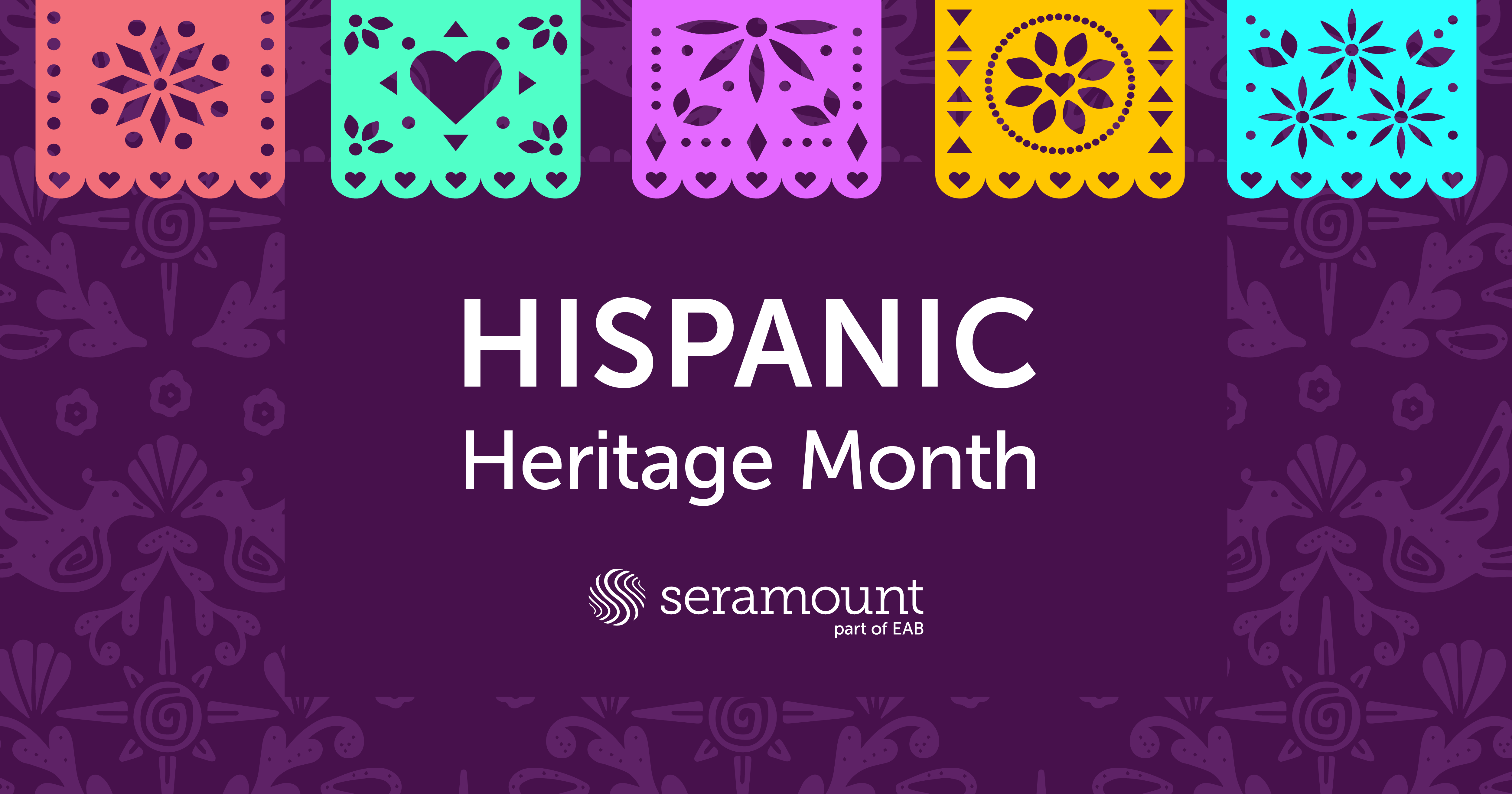As part of National Hispanic Heritage Month, Seramount hosted a webinar for our Diversity Best Practices (DBP) member organizations that celebrated the unique cultural differences reflected by the Latine population around the world. It was moderated by Marcelo Vasquez Lopez, a Partnering Consultant, Global Office of DEI at Liberty Mutual Insurance, a DBP member organization. He introduced the keynote speaker, Anna Maria Chávez, who is the founder of Fearless Global Initiative, and the two panelists: Priscilla Fuentes — CEO American Red Cross Cascades Region (and Co-Chair of the Latino Resource Group) and Johanna Figueira — Marketing Communications at Code for Venezuela and Senior Social Media Manager at Amazon.
This webinar brought attention to the rising number of Latine people in the United States and the power they hold as a collective. Marcelo played a video created for Liberty Mutual which stated that America is the second–largest Spanish–speaking country in the world. Anna Maria Chávez also came with new research-based statistics, saying that Latine people account for 73% of the growth of the US labor force since 2010, even though they represent only 18.6% of the population. The Latine community’s consumption also grew more than three times faster than non-Latine consumption, showing that Hispanic people play a vital role in our continued growth as a society.
Marcelo kicked off the webinar with a beautiful anecdote about growing up as a gay man in Chile and expressed how appreciative he was of how he grew up. By being true to his authentic self and his culture, he was able to realize how special his Hispanic heritage is, and his desire to honor it grew as he got older. He closed out his story by reminding all of us in attendance that Latine people represent many different types of people and values, and we all need to be intentional about including all the diversity within the Latine community.
Keeping this beautiful journey in mind, here are some key takeaways from the session:
One theme that ran throughout the webinar, was the resilience and necessity of community among Latine people. One of the first things Anna Maria Chávez mentioned was that she grew up “understanding the meaning of community.” She knew from a young age how powerful community could be when everyone comes together for the greater good. The Latine community is multidimensional and multigenerational and often comes together to protect their own. There is space for everyone, and no one should feel discouraged for being who they are and representing their space. Priscilla, Johanna, and Marcelo highlighted the diversity of the Latine community, expressing how appreciative they are of the many different facets that come together to weave this colorful tapestry. Standing together to support and represent the community is powerful. Community allows for support to enact change and progress that can be scary to initiate, but the payoff can be worth it when lasting change happens.
Johanna mentioned that she supports her community by changing the way she speaks about her home country of Venezuela. The vision of Code for Venezuela mentions using the “immense human capital of our community” and using that power to “funnel it towards effective initiatives” to help support the country. She also has made a space for others to create projects that directly impact the community and allow them to give back to their home country.
ERGs and Advocacy
Anna Maria Chávez closed out her keynote speech by speaking on the importance of Employee Resource Groups (ERGs) and why they are necessary. ERGs are an important tool for organizations to ensure that every demographic group is advocated for and feels as though they can bring their authentic self to work. Priscilla Fuentes, of the American Red Cross, spoke on the importance of Employee Resource Groups and how they help minority groups advocate for themselves, serve as a place for mentorship, and help change the greater community outside of the company. The ERG she mentioned, Latino Resource Group, was created to provide Latine employees and volunteers with a chance to connect with people at the top of the organization and build relationships. She credits “receiving support from the top of the organization” for the program’s success. She also mentioned that the group has been able to advocate for the Latine community outside of the company and is able to serve them better than they had before.
By allowing Hispanic employees to have a space where they feel comfortable speaking about issues in their communities’, better solutions can come about. Priscilla mentioned that by gaining an understanding of the cultural connotations that surround the Red Cross in Hispanic countries, they were able to change their help response and influence the course of the company’s future. By knowing the culture, they can advocate for those who need it most.
Staying True to Yourself and Your Culture
The Hispanic community is about staying true to yourself while also honoring your culture. The moderator, keynote speaker, and panelists, all reaffirmed that having strong ties to their culture is key to being able to honor it. Marcelo said that when he moved to the United States for college, he learned to love his country (Chile) and culture more than when he lived there. Priscilla commented on how knowing Hispanic culture helped shift her response to Hispanic communities in crisis. Johanna cited wanting to change the narrative around how Latine people speak about their country by doing something positive.
As members of diverse and multifaceted cultures, they also spoke about how to stay true to yourself and not be pigeonholed or stereotyped at work. Priscilla and Johanna both spoke on the pressure to fit into the Latine stereotype of having a sassy, outgoing personality and how that isn’t the case for most people. By being yourself, and not a caricature, it’s easier to advocate for your culture. By being authentic, one can really elicit the change they want to see happen for their community.
Each heritage month, Seramount hosts a celebratory webinar for all employees of our Diversity Best Practices member organizations to facilitate engagement, learning, conversation, and community. Interested in learning more about membership? Contact us.





